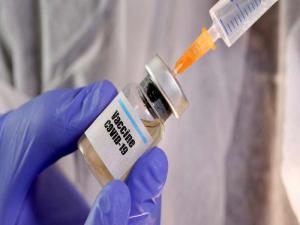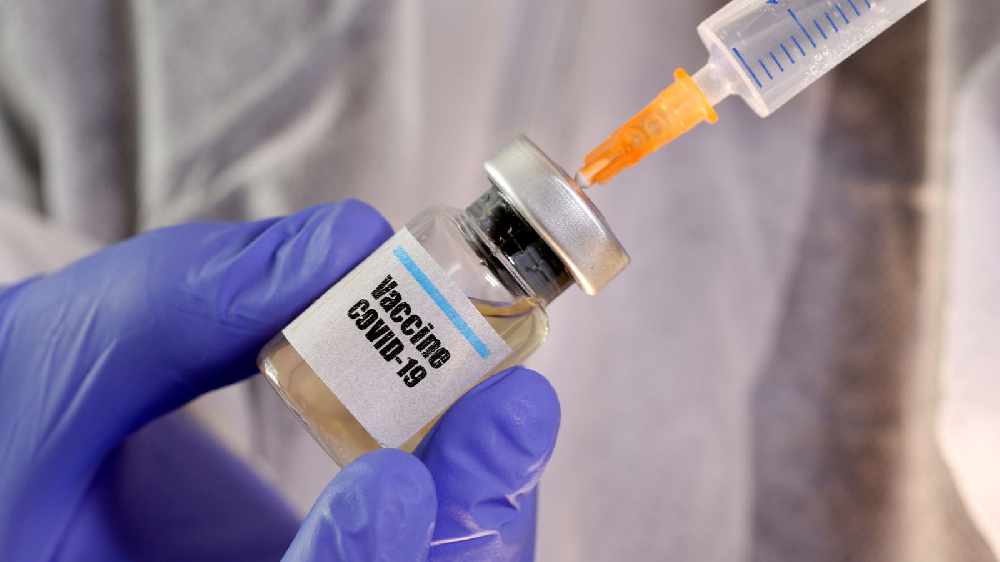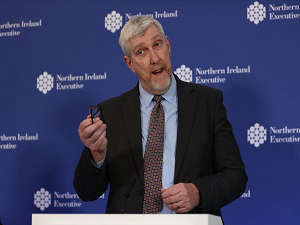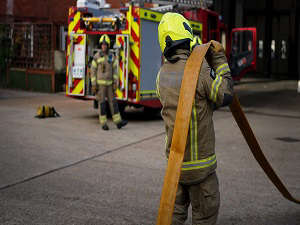
By Cate McCurry, PA
Ireland’s plan to ramp up the vaccine rollout in April has been dealt a blow after the Tanaiste said there will be a drop in the expected number of vaccines delivered this month.
Leo Varadkar said that fewer than a million doses of the vaccine will be delivered in April.
Last week, Minister for Health Stephen Donnelly told the Dail that 1.1 million doses were scheduled to be delivered over the next four weeks.
“I would like to get about a million a month through April, May and June, but it will be less than a million in April, more than a million in May and June,” Mr Varadkar said today.

(Tanaiste Leo Varadkar)
Mr Varadkar said the Government can never be certain about supplies, adding that things can go wrong.
“We do expect to have most adults vaccinated by the end of May and the vast majority of adults offered their first dose no later than the end of June,” he added.
Some 112,000 vaccines arrived in Ireland on Wednesday, which means the Government reached its projection of receiving 1.187 million vaccines in the first quarter of the year.
The Government also plans to administer a total of one million doses by April 7.
On Wednesday, Mr Donnelly told the Fianna Fail parliamentary party meeting that 860,000 vaccines would be delivered in April.
Social Democrats co-leader Catherine Murphy said: “Can you clarify just exactly what is the situation in relation to the number that will be vaccinations in April?"
The Kildare North TD also said the controversy over the Beacon Hospital has “undermined” social solidarity.
The private hospital in Dublin has been at the centre of controversy after it emerged that it used spare jabs to vaccinate teachers from an exclusive school.
The hospital has launched an independent investigation.
“I talk to people in their 30s and 40s with advanced cancers. In most cases, they have children,” Ms Murphy added.
“Many I talked to told me that they literally haven’t been able to leave the house for the last year because of the risk of Covid.
“People with conditions like CF (cystic fibrosis) or serious cardiac conditions, people describing just how afraid they are, often talking to you trying to hold back the tears.
“I don’t think it’s fully appreciated just how damaging this scandal has been and how it undermines social solidarity.
“None of us like the restrictions, and we all feel that the last year has been a stolen year, but with someone with a life-limiting condition and the precious moments that they spend indeed with their children is beyond calculation in terms of the importance of time.
“The vaccine wasn’t stolen from you and I, it was stolen from those in cohort four. That’s just the reality of it.
“There has to be consequences otherwise we will see this happen again.
“It’s also clear that there’s a huge deficit of information. I certainly talked to people who told me they were told that they might get a vaccination within six weeks – that’s early May.
“There needs to be clarity here and better communication.”
Mr Varadkar said that what happened at the Beacon was “wrong”.
“The Government’s rules and the Government regulations, the HSE’s rules and regulations, were not followed,” he added.
“That does undermine people’s confidence in the vaccine rollout and is terribly unfair on people who’ve been cocooning or people who’ve been stuck in their homes for the best part of the year.”
Mr Varadkar said the decision to overhaul the vaccination rollout plan was made on public health advice from doctors and scientists from the National Immunisation Advisory Committee.
After the most vulnerable and people over 70 have been inoculated, the rollout will be based on age groups, and not occupations as previously planned.
“It’s made for very good reasons, and a very good reason is that people in their 50s and 60s are at much higher risk of getting severely ill or dying from Covid than people in their 20s and 30s,” Mr Varadkar said.
“As someone in their 30s has 0.2% chance of dying from Covid, somebody in their 50s is 1.3%, six times higher.
“For somebody in their 40s is 0.4%, for somebody in their 60s is 3.6% – nine times higher.
“There is no group, no profession, other than healthcare workers, that is at higher risk of getting severely ill from Covid or dying from Covid, than the average person in their 60s and that’s why it makes sense to prioritise people in their 60s and 50s.
“One thing that is very advantageous, I think, about moving towards an age-based system is that it is simple. All you need is proof of date of birth.”



 Executive agrees budget with funding to cut waiting lists and boost childcare
Executive agrees budget with funding to cut waiting lists and boost childcare
 Man charged with murder of pensioner in Co Tyrone
Man charged with murder of pensioner in Co Tyrone
 Government failure to order public inquiry into Sean Brown murder ‘cannot stand
Government failure to order public inquiry into Sean Brown murder ‘cannot stand
 Viable pipe bombs found at site near Co Down nursery
Viable pipe bombs found at site near Co Down nursery
 ‘Extreme’ wildfire risk issued for Northern Ireland
‘Extreme’ wildfire risk issued for Northern Ireland